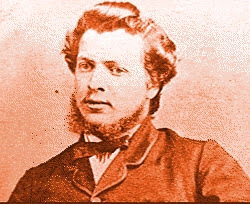State of the World’s Human Rights a Report from Amnesty International
The press release can be found at http://www.nationtalk.ca/modules/news/print.php?storyid=9984
The 2008 report can be found at http://thereport.amnesty.org/eng/Homepage
60 Years of Human Rights Failure -- Governments Must Apologise And Act Now
28 May 2008 (London) Amnesty International today challenged world leaders to apologize for six decades of human rights failure and re-commit themselves to deliver concrete improvements.
“The human rights flashpoints in Darfur, Zimbabwe, Gaza, Iraq and Myanmar demand immediate action,” said Irene Khan, Secretary General of Amnesty International, launching AI Report 2008: State of the World’s Human Rights.
“Injustice, inequality and impunity are the hallmarks of our world today. Governments must act now to close the yawning gap between promise and performance."
Amnesty International’s Report 2008, shows that sixty years after the Universal Declaration of Human Rights was adopted by the United Nations, people are still tortured or ill-treated in at least 81 countries, face unfair trials in at least 54 countries and are not allowed to speak freely in at least 77 countries.
“2007 was characterised by the impotence of Western governments and the ambivalence or reluctance of emerging powers to tackle some of the world’s worst human rights crises, ranging from entrenched conflicts to growing inequalities which are leaving millions of people behind,” said Ms Khan.
Amnesty International cautioned that the biggest threat to the future of human rights is the absence of a shared vision and collective leadership.
“2008 presents an unprecedented opportunity for new leaders coming to power and countries emerging on the world stage to set a new direction and reject the myopic policies and practices that in recent years have made the world a more dangerous and divided place,” said Ms Khan.
Amnesty International challenged governments to set a new paradigm for collective leadership based on the principles of the Universal Declaration of Human Rights.
“The most powerful must lead by example,” said Ms Khan.
- China must live up to the human rights promises it made around the Olympic Games and allow free speech and freedom of the press and end “re-education through labour”.
- The USA must close Guantánamo detention camp and secret detention centres, prosecute the detainees under fair trial standards or release them, and unequivocally reject the use of torture and ill-treatment.
- Russia must show greater tolerance for political dissent, and none for impunity on human rights abuses in Chechnya.
- The EU must investigate the complicity of its member states in “renditions” of terrorist suspects and set the same bar on human rights for its own members as it does for other countries.
Ms Khan warned: “World leaders are in a state of denial but their failure to act has a high cost. As Iraq and Afghanistan show, human rights problems are not isolated tragedies, but are like viruses that can infect and spread rapidly, endangering all of us.”
“Governments today must show the same degree of vision, courage and commitment that led the United Nations to adopt the Universal Declaration of Human Rights sixty years ago.”
“There is a growing demand from people for justice, freedom and equality.”
Some of the most striking images of 2007 were of monks in Myanmar, lawyers in Pakistan, and women activists in Iran.
“Restless and angry, people will not be silenced, and leaders ignore them at their own peril,” said Ms Khan.
NOTES TO EDITORS
- Amnesty International’s Report 2008, the organization’s annual global assessment of human rights, published on the 60th anniversary year of the Universal Declaration of Human Rights, covers 150 countries.
- The report highlights the following trends:
- Targeting of civilians by armed groups and government forces with impunity;
- Pervasive violence against women;
- Promotion of torture and ill-treatment as acceptable modes of intelligence gathering;
- Suppression of dissent and attacks on journalists and activists;
- Lack of protection for refugees, asylum-seekers and migrants;
- Denial of economic and social rights; and
- Evasion of corporate accountability for human rights abuses.
3. Amnesty International noted the progress made over the last six decades, in particular laws and institutions on human rights, growing support for an end to the death penalty, prosecution of some cases of war crimes and crimes against humanity by international tribunals and national courts.
4. The Universal Declaration of Human Rights was adopted by the United Nations on 10 Dec 1948.
5. Re-education through labour is a system of punitive detention imposed by the police for up to four years without charge, trial or judicial review in China.
The Government is trying to address some of the disparity in the areas of human rights in Canada - the Government has passed the third reading on Bill C-21 to amend the Canadian Human Rights Act.
http://www.nationtalk.ca/modules/news/print.php?storyid=9984
Statement by The Honourable Chuck Strahl in Relation to Bill C-21, An Act to Amend The Canadian Human Rights Act
OTTAWA, ONTARIO--(May 28, 2008) - The following statement was released by the Honourable Chuck Strahl, Minister of Indian Affairs and Northern Development and Federal Interlocutor for Metis and Non-Status Indians related to Bill C-21:
"I am very pleased that Bill C-21 - our government's legislation that extends real human rights protections to all members of First Nations communities - received Third Reading and passage by the House of Commons today and is now before the Senate.
Bill C-21, an Act to Amend the Canadian Human Rights Act is the culmination of a concerted effort by the federal government, Aboriginal groups and individuals, and Parliamentarians to bring an end to a legislative gap that has shamefully left many First Nations people without full access to the Canadian Human Rights Act for 30 years. Our government believes that delivering real human rights to First Nations peoples, as this Bill does, is much more important and tangible than any aspirational document.
I would like to thank all parties who were involved in this historic process. I am confident that Senators will give this bill the priority it deserves.
Through the hard work and dedication of numerous stakeholders, we are now significantly closer to ensuring that all Canadians have full access to fundamental human rights protections.
For more information,
please contact
Office of the Honourable Chuck Strahl
Josee Bellemare
Press Secretary 819-997-0002
or
Indian and Northern Affairs Canada
Media Relations 819-953-1160






